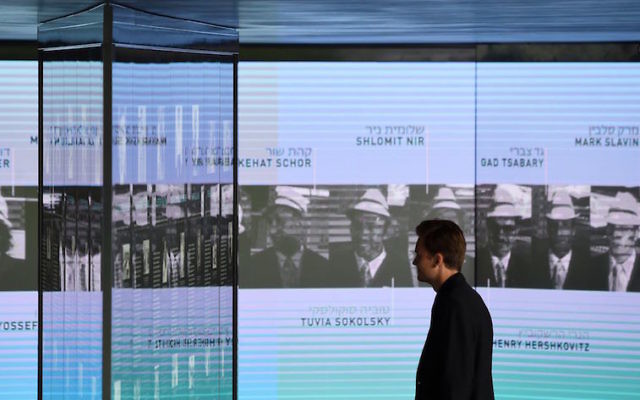Munich victims’ memorial opens
An Israeli athlete who was castrated and killed by terrorists at the 1972 Munich Olympics can at last enter a "complete rest", his widow has told The AJN after winning a 45-year fight for a memorial.

AN Israeli athlete who was castrated and killed by terrorists at the 1972 Munich Olympics can at last enter a “complete rest”, his widow has told The AJN after winning a 45-year fight for a memorial.
Ilana Romano, the widow of weightlifter Yossef Romano, spoke soon after returning home to Tel Aviv from Munich for the opening of a commemoration centre in the place where 11 Israelis were taken hostage by the Black September Palestinian terror group.
“It was emotional, truly emotional – we waited 45 years for this,” said Romano, recalling how for decades the request by bereaved families for a memorial was met with antagonism from German officials.
“At first they said, ‘what do you want of Germany,’ and they spoke of the terrorists as freedom fighters not terrorists.”
The Germans redeemed themselves with the opening of the new memorial, in the eyes of Romano and other relatives of athletes.
“It is high time and we owe it firstly to you, the relatives,” said German President Frank-Walter Steinmeier.
“The Olympic village became a place of Palestinian terrorists, a stage for their boundless hatred for Israel. It should never have happened.”
The struggle for proper commemoration has often been an uphill one – and one which Australian Jews have rushed to support. In 2012 large numbers of AJN readers signed letters to the International Olympic Committee calling for a minute’s silence dedicated to Munich victims during the opening ceremony of the London games.
To the disappointment of families, the IOC did not agree.
However, it did help with the cost of the new Munich memorial, and committee president Thomas Bach gave a speech at the ceremony.
“I know that no ceremony and no memorial can fill the void left by those whose lives were taken so violently,” he said.
“It is my sincere hope, however, that the memorial we opened this morning will be a symbol of our shared grief; will be a tool of education for us and for future generations; will be a demonstration of our determination to defend our Olympic values of peace and tolerance.”
The opening of the new memorial felt like a real watershed moment, Romano said.
“The deceased were given a respect they were never given before,” she commented, adding that she “never returned home before as I returned home now – with all the hurt in my heart but also a real joy.”
At the ceremony, Israel’s President Reuven Rivlin said that the memorial is important – but the commemoration fight isn’t over.
“For 45 years, almost half a century, the victims’ families and the State of Israel looked expectantly for this moment: the inauguration of a centre of remembrance and a memorial in the Olympic Village,” said Rivlin.
“Some of the delegation who survived the massacre are sadly no longer alive – indeed just a month ago, weightlifter Tuvia Sokolsky passed away – and still we are waiting for injustice to be rectified, that there will be a minute’s silence at the opening ceremony of the Olympic Games.”
NATHAN JEFFAY

comments